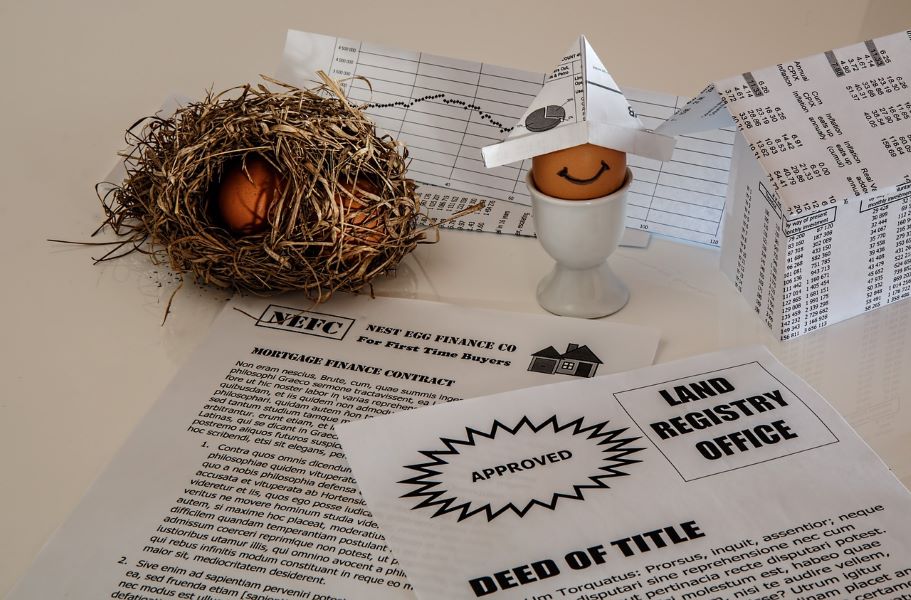In this big world of financial instruments, one term that often surfaces is the Credit Default Swap (CDS). This tool plays a vital role in managing credit risk in the financial markets. In this blog, we will explore what a Credit Default Swap is, how it functions, and the risks associated with it.
What is a Credit Default Swap?
A Credit Default Swap is a financial derivative contract between two parties, where the buyer makes payments to the seller in exchange for protection against the default of a particular borrower or credit instrument. In simpler terms, it is a form of insurance against the risk of a borrower failing to meet their debt obligations.
Also Read: Common Pitfalls to Avoid When Applying for a Personal Loan with a Low CIBIL Score
How Does a Credit Default Swap Work?
In a Credit Default Swap arrangement, the buyer of the swap pays a premium to the seller in return for protection against the default of a specific borrower or credit instrument. If the borrower defaults or experiences a credit event, the seller is obligated to compensate the buyer for the loss incurred.
This swap allows investors or institutions to hedge against the risk of default on loans or bonds in their portfolio. It also provides a way for investors to speculate on the creditworthiness of a particular borrower without owning the underlying debt instrument.
Also Read: 5 Ways to Save Your Money Through Personal Loan

The Risk of Credit Default Swaps
While Credit Default Swaps can be valuable risk management tools, they also come with inherent risks. One of the primary risks associated with CDS is counterparty risk. If the seller of the swap fails to honour their obligations in the event of a credit event, the buyer may incur significant losses.
Another risk is basis risk, which arises when there is a mismatch between the reference entity in the CDS contract and the actual exposure of the buyer. This can lead to losses if the reference entity defaults but the buyer’s actual exposure remains unaffected.
Additionally, liquidity risk is a concern with Credit Default Swaps, as these instruments may become illiquid during times of financial distress, making it challenging for investors to unwind their positions.
Also Read: 7 Signs to Understand Personal Loan Scams
FAQs
1. What is the purpose of a Credit Default Swap?
The primary purpose of a Credit Default Swap (CDS) is to transfer credit risk from one party to another. Essentially, it functions as a form of insurance against the risk of default on loans or bonds in an investor’s portfolio. By entering into a CDS agreement, investors can protect themselves from potential losses arising from credit events that may impact the value of their investments.
2. How do Credit Default Swaps impact the financial markets?
Credit Default Swaps have a significant impact on the financial markets in several ways. Firstly, they provide investors with a mechanism to hedge against credit risk, allowing them to manage and mitigate potential losses associated with default events. This risk management tool enhances market efficiency by enabling investors to take on credit exposure while safeguarding against adverse outcomes.
Moreover, Credit Default Swaps contribute to market liquidity by facilitating the trading of credit risk. They allow investors to buy or sell protection on credit instruments, thereby increasing the overall liquidity of the market and improving price discovery for credit securities. This liquidity enhancement fosters a more robust and dynamic financial marketplace.
Additionally, the pricing of credit instruments is influenced by the trading activity in Credit Default Swaps. Market participants use CDS prices as a benchmark to assess the creditworthiness of entities and determine the pricing of related securities. Changes in CDS spreads can signal shifts in market sentiment and provide insights into the perceived credit risk of different issuers.
3. Are Credit Default Swaps regulated by authorities?
Yes, Credit Default Swaps are subject to regulation by financial authorities in various jurisdictions to ensure transparency, mitigate risks, and safeguard the stability of the financial system. Regulatory oversight aims to promote the fair and efficient functioning of the CDS market, protect investors from potential abuses, and prevent systemic risks that could arise from the uncontrolled use of these derivatives.
Regulations governing Credit Default Swaps may include requirements for reporting trades, disclosing information to market participants, setting capital adequacy standards for market participants, and establishing clearing and settlement procedures. By imposing regulatory frameworks, authorities seek to enhance market integrity, reduce the likelihood of market manipulation, and promote investor confidence in the CDS market.
4. Can individuals or retail investors participate in Credit Default Swaps?
Credit Default Swaps are predominantly traded in the over-the-counter (OTC) market and are primarily utilised by institutional investors, hedge funds, and financial institutions. Due to their complex nature, risk factors, and sizeable notional values, CDS transactions are typically beyond the reach of individual or retail investors who may lack the requisite expertise, resources, and risk tolerance to engage in these sophisticated financial instruments.
Institutional investors and sophisticated market participants are more commonly involved in Credit Default Swaps as part of their risk management strategies, portfolio diversification efforts, or speculative activities. These entities have the necessary knowledge and resources to navigate the complexities of CDS trading and assess the associated risks effectively.
5. What are the key considerations before entering into a Credit Default Swap agreement?
Before entering into a Credit Default Swap agreement, parties should carefully evaluate several key considerations to ensure informed decision-making and risk management. Firstly, assessing the creditworthiness of the reference entity or underlying credit instrument is crucial. Understanding the financial health, credit rating, and risk profile of the entity against which protection is sought is essential to evaluate the likelihood of default and potential losses.
In conclusion, Credit Default Swaps play a significant role in the financial markets by allowing investors to manage credit risk and speculate on the creditworthiness of borrowers. Understanding the mechanics and risks associated with CDS is essential for investors looking to utilise these instruments effectively.
If you’re looking for a personal loan then consider Airtel Finance, avail a loan amount of up to Rs. 9 lakh at an interest rate that starts from 11.5%.


